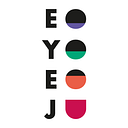Life in East Cleveland: A Memoir of Self Discovery & Change
By Megha Goel
“I grew up writing essays and stories on what I was doing, the things I saw around in my neighborhood, and the news that mattered to our community the most,” says 19-year-old Maranda Priah. She is a second-year student pursuing sociology and psychology at Case Western University. Growing up in East Cleveland, she gives us a glimpse of her childhood, discussing stories of policing, racism, and unjust systems. In a candid conversation, she shares her memoir of self-discovery amidst challenges.
TALES OF EAST CLEVELAND
Born and brought up in East Cleveland, Maranda Priah is a single child of a working mom and a driver dad. “My journey of growing up can only be understood by understanding my neighborhood,” says Priah. East Cleveland is predominantly an African American community where more than 32% of the population lives below the poverty line. “Lack of resources, meager income, a shortage of healthy groceries, no education, no internet, failing health services and drug addiction; all contribute to growing scenes of squalor across East Cleveland,” highlights Priah. Intern at the Social Justice Institute Cleveland, she says, “The injustices and unfair situations in my neighborhood bothered me since I was a child, and I always wanted to be able to make a difference.”
TALKING ABOUT RACISM
“Despite the racial tension around, my mom has always instilled self-worth in me,” Priah says, highlighting the joys of a young girl. “While the continuous acts of injustice perpetuated throughout the country, my mom always made sure that I was informed about the happenings. She knew how things would affect me if I weren’t educated.” Priah shares a fond childhood memory, “She made me write essays on the news we watched on TV. I specifically remember writing a story on Barack Obama being elected as the nation’s first black president. She called him our ‘hope.’” Priah shares that Obama’s election symbolized that anybody from their community could rise and bring a change if they worked hard and had the right message. “It was the death of the 12-year-old African-American, Tamir Rice, shot dead by the Cleveland police that instilled anger in me. And this time, I didn’t have an essay to write. I questioned.” The 19-year-old shares that the children in her neighborhood, including her, have grown up seeing and hearing acts of injustices being inflicted upon them. “As my anger mounted, I realized that there were two ways in which I could respond to the unfair treatment — either react with bitterness or seek to change by educating my friends and younger children around. I decided to follow the latter course.” Young children see scarcity, neglect, and abuse; they aren’t given the necessary resources to thrive, leading to toxic stress at a young age. They need to be fed with the world's happenings, our history of the civil rights movement, and redlining that lead us here. “Mom talking to me about racism and supporting me emotionally each time I questioned her helped me acknowledge my position and constantly pushed me to strive for a better.” Only with this education, the youth will be prepared to protect themselves and uphold their rights in the present and the future.
SCHOOL POLICING, A THREAT
Working with the Social Institute of Justice, Priah spent a lot of time organizing meetings and talking to the youth. “The students always complain about strong punishments like being suspended or expelled for small offenses. They were not happy with the schools they were sent to.” Policing outside school is another matter of concern, she discusses. “Students feel unsafe when encountering police in their communities. Police in schools are an additional burden that exposes us to fear. We have always seen police repressing and killing unnecessarily rather than protecting.”
CHALLENGING INJUSTICE
Injustices exist everywhere. “I have been witness to unfair practices and cruelties,” Maranda says that unpleasant experiences of the present times and education of the past; together have served to strengthen her desire to work for equity. As a member of the EYEJ Youth Council, she shares, “I reach out to the young people and encourage them to participate in programs that would help them lend their voice towards bringing a change.” Maranda is also a member of the All-Star Reading Program. She shares, “this discussion series helps us learn things about our community and surroundings. We discuss topics of concern that are important to bring a positive change tomorrow.”
With a strong desire to help others and to assist the youth with the challenges of daily living, Maranda Priah aspires to study in the field of counseling; “I want to offer to others the same support and education that my mother gave me.”

Maranda Priah concludes, “I am a proud resident of East Cleveland. I want to represent my people and stand up against the existing oppression. I want the youth from my community to know that the color of our skin may dictate how the world sees us, but we must break out of these boundaries with a powerful voice.”
